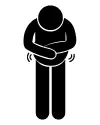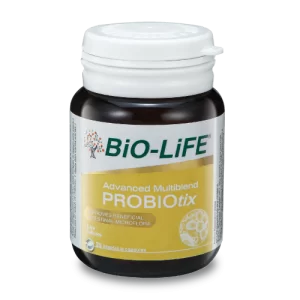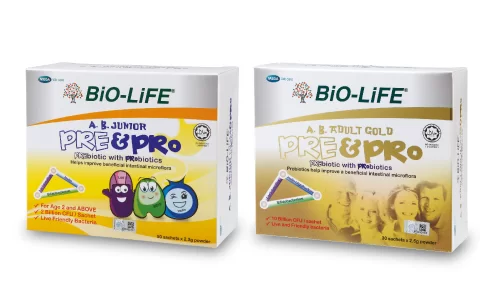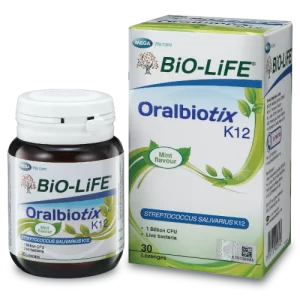
Ramadan & Probiotics
Mar 24, 2020
Introduction
The holy month of Ramadan is here! It marks the ninth month of the Islamic calendar, where all Muslims around the world fast from dawn to dusk. In Malaysia, the average Ramadan fasting period is 13 hours1, but in the other part of the world, it can be up to 20 hours! Aside from religious obligations, fasting has been proven to have multiple health benefits such as lowering blood sugar level, cholesterol level, and blood pressure2. In fact, Ramadan may be the perfect timing to get your healthy eating habits back on track.
Common Health Complaints During Ramadan

Stomach upset

Bloating

Constipation

Bad breath
During Ramadan, our diet should be as simple as possible. We know that sometimes it is hard to resist the food temptation at the Ramadan bazaar. Thus, it is important to plan our meal ahead. For Suhoor, consume complex carbohydrates such as brown rice, whole grains, and oats to release energy slowly throughout the day. For Iftar, start the meal with dates and fruit juice for a quick burst of energy. It is also advisable to eat slowly, gradually, and avoid over-eating. Reason being, cases of stomach upset such as indigestion, bloating, and acid reflux often occur mainly due to eating habits during non-fasting period3. In addition, the other issue which commonly arises during Ramadan is halitosis or as known as bad breath4.
Resolve Problematic Digestive Issues

For mild digestive discomfort, you will get better with daily consumption of BiO-LiFE Advanced Multiblend Probiotix. It contains 7 different probiotic strains of Lactobacillus and Bifidobacterium group (especially the well-studied Lactobacillus acidophilus NCFMÓ) for supporting digestive health. These probiotics strains help restore the balance of beneficial bacteria inside your intestine, which then improves and maintains the health of the digestive system, thus reduce the occurrence of digestive issues.

If you are frequently experiencing multiple digestive issues, this could be a condition known as irritable bowel syndrome (IBS). Then, BiO-LiFE Probi LP299V is the ideal solution. This probiotic helps strengthen the intestines and stimulates the growth of beneficial bacteria. Thus, your gut can maintain a healthy environment and function well.
Common Health Complaints During Ramadan

It is challenging to meet all the daily nutrient requirements during the fasting month, especially for children and aging adults. Fret not, BiO-LiFE AB Junior Pre & Pro and BiO-LiFE AB Adult Gold Pre & Pro can help! The symbiotic formulation (i.e., probiotics + prebiotics) contributes majorly in boosting nutrient absorption by preparing an optimal intestine environment. It can also reduce the constipation issue commonly happened throughout fasting month due to limited fluid intake. Also, prebiotics further improves the absorption of Calcium, which essential for your bone and teeth health.
Kicks Away Bad Breath

The mint flavour BiO-LiFE Oralbiotix is your solution. This lozenge helps fight away the bad bacteria in your mouth. Without the bad bacteria odour, you get to maintain oral health and freshness. As soon as 7 days, you can feel the improvement in your breath odour. Another plus point is that, this good bacteria may also reduce the occurrence that produced the bad of throat infections.
References
- Buchholz, K., & Richter, F. (2019, May 3). Infographic: How Long Do Muslims Fast For Ramadan Around the World? Retrieved from https://www.statista.com/chart/17874/
ramadan-daily-fasting-hours-selected-cities/ - S, A., K, G., Ka, M., & P, G. (2012). Psycho-Social Behaviour and Health Benefits of Islamic Fasting During the Month of Ramadan. Journal of Community Medicine & Health Education, 2 (9)
- Malaysian Dietitians’ Association. Minimise Stomach Upsets During Ramadan. Retrieved from https://www.dietitians.org.my/health-info/minimise-stomach-upsets-during-ramadan
- Kord Afshari G, Moghimi M, Mohammadi H, Shams Ardekani M. (2021). Avoiding Halitosis in Fasting People the Viewpoint of Traditional Iranian Medicine. Journal of Islamic and Iranian Traditional Medicine, 3 (1): 137-139



